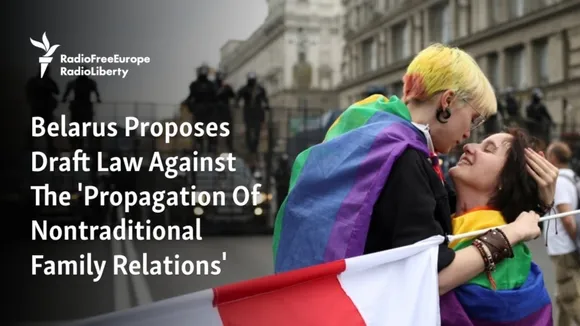
In a move that has sparked international concern, Belarus is poised to introduce a draft law that targets the promotion of LGBT relationships by categorizing them as ‘non-traditional.’ The proposed legislation, which is currently under review, seeks to impose administrative penalties for what it terms the promotion of ‘unusual relationships,’ a term that encompasses LGBT relationships. This legislative effort mirrors a disturbing trend towards the repression of LGBT rights under the guise of safeguarding traditional values, a stance publicly endorsed by President Alexander Lukashenko, who has openly ridiculed the LGBT community.
The Implications of the Proposed Law
The draft law is not just a symbolic gesture but carries significant implications for the freedom of expression and the rights of the LGBT community in Belarus. By establishing administrative liability for promoting non-traditional relationships, the legislation threatens to censor any positive representation of LGBT relationships in media and literature, effectively silencing an already marginalized community. Furthermore, the draft law’s broad scope, which includes punitive measures for promoting pedophilia and a voluntary refusal to have children, underscores the government’s intent to control personal freedoms and enforce conformity to state-sanctioned norms of behavior and family structure.
Comparisons with Neighboring Russia
Belarus’s proposed legislation bears a striking resemblance to similar laws enacted in neighboring Russia, where anti-gay propaganda laws have been used to suppress dissent and marginalize the LGBT community. This alignment with Russian policies reflects a broader regional trend towards authoritarian governance and the repression of minority rights, with President Lukashenko and Russian President Vladimir Putin presenting a united front against what they perceive as the erosion of traditional values. Despite the decriminalization of homosexuality in Belarus in 1994, the absence of legal protections for same-sex couples and the crackdown on LGBT pride parades reveal a deeply ingrained bias against the LGBT community.
A Chilling Effect on Freedom of Expression
The draft law’s implications extend beyond the LGBT community, posing a threat to freedom of expression and the press in Belarus. News outlets, as well as non-news platforms, face the prospect of censorship for any content deemed to promote non-traditional relationships, including gay personal ads and LGBT publications. This legislative move is part of a broader crackdown on dissent and the suppression of alternative voices, as evidenced by the country’s ranking of 45th out of 49 in a review of LGBT rights in Europe and Central Asia. The proposed law, therefore, not only targets the LGBT community but also signals a troubling shift towards greater state control over personal freedoms and civil society.
In conclusion, the draft law prepared by Belarus to penalize the promotion of LGBT relationships marks a significant step backward for human rights in the country. By aligning itself with neighboring Russia’s repressive stance towards the LGBT community, Belarus is not only infringing on the rights of a marginalized group but is also undermining the principles of freedom of expression and diversity. As the draft law undergoes the approval process, the international community watches closely, hoping for a course correction that upholds the rights and dignity of all individuals, regardless of their sexual orientation or identity.



